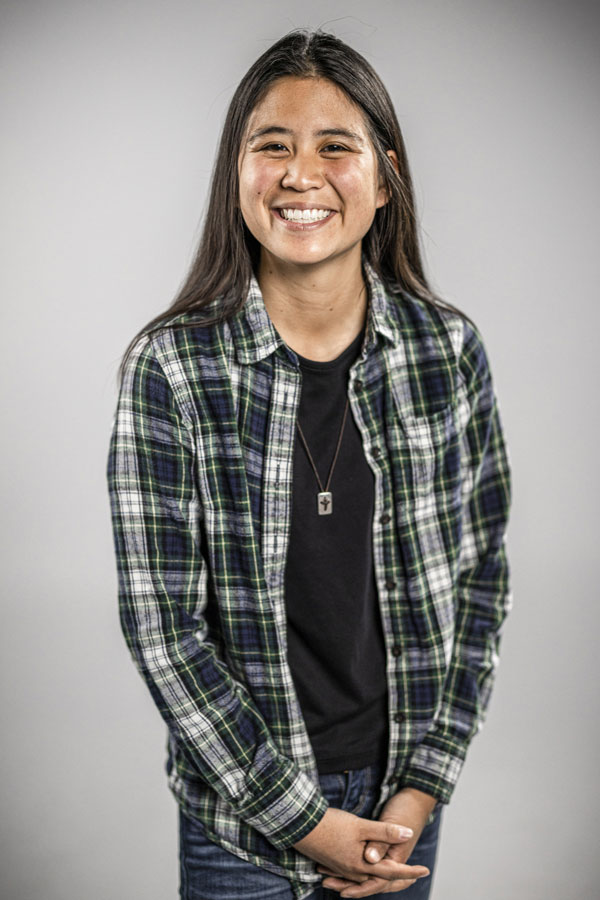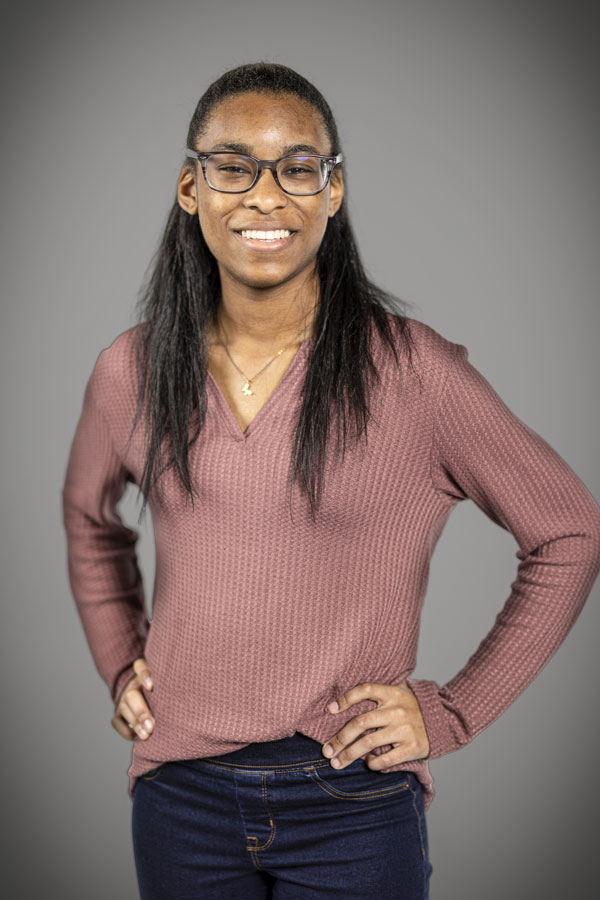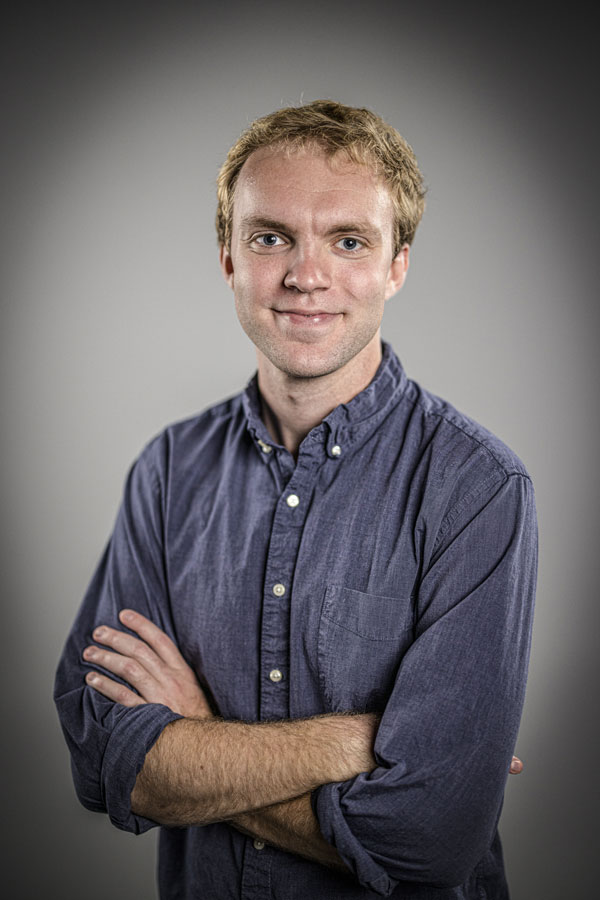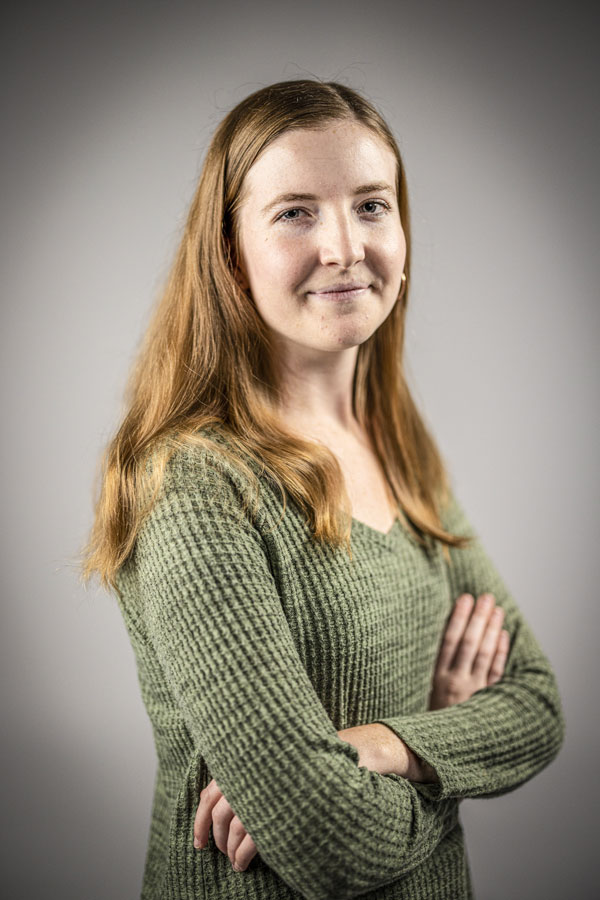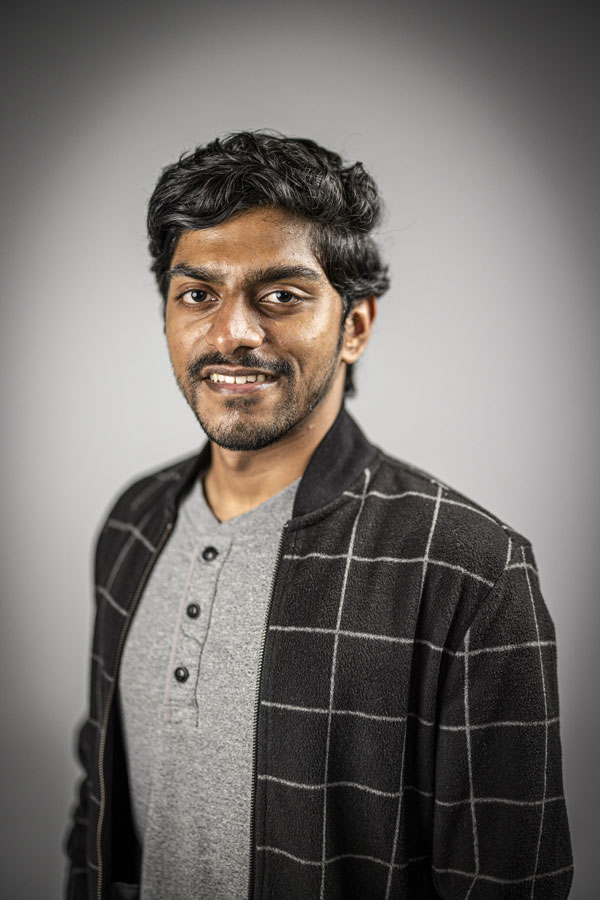Transformational Opportunities
Meeting the needs of today's undergraduate students who seek meaningful academic research as they select a university experience
Many factors are at play when high school students evaluate their college options. Undergraduate research may not seem like a top priority for some high school juniors or seniors, but for a growing number of students, opportunities to pursue advanced academic research as an undergraduate at Baylor can be the deciding factor. For others, discovering these opportunities after arriving at Baylor can provide life-changing direction and initiate world-changing endeavors in research and academia.
Meet some of the remarkable Baylor students who are taking advantage of the University’s transformational undergraduate experience to pursue research opportunities within a caring community of academic excellence.
Kate Rojales
While a senior in high school, Kate Rojales traveled from Milton, Georgia, to take part in Baylor’s Invitation to Excellence — a competitive program for high-achieving students that showcases many of the exciting academic opportunities the University offers. She met students and faculty and toured some of the University’s research labs. Today, Rojales is a chemistry major in the Honors College, minoring in religion and Great Texts of the Western Tradition.
“That experience helped me realize that meaningful undergraduate research is a thriving reality at Baylor, not just a wish or dream,” Rojales says.
As a freshman in the lab with Caleb Martin, Ph.D., associate professor of chemistry at Baylor, Rojales formed a mentorship with then-graduate student Samantha Yruegas, Ph.D. ’19, who is currently a postdoctoral researcher at Princeton University. Yruegas’ mentorship opened Rojales’ eyes to a world of opportunity and the potential for a career path in academia.
“Her people-oriented personality and passion for chemistry research helped me realize how I could better fulfill my loves for people and science in academia,” Rojales says. “Research did not mean a mad scientist working alone in a lab, as I had imagined, but rather joining a collaborative, problem-solving team.”
Rojales has built a wealth of research experience in synthetic inorganic chemistry, focusing on synthesis and reactivity of novel boratabenzene transition metal complexes through the Martin Research Group. Her passion for research led to Rojales being named a recipient of the 2021 Barry M. Goldwater Scholarship, which was awarded to 408 scholars out of 5,000-plus applicants from around the country.
“I came to Baylor because of the University’s caring community, commitment to the Christian faith and excellence in undergraduate research.”
“I came to Baylor because of the University’s caring community, commitment to the Christian faith and excellence in undergraduate research,” Rojales says. “Baylor is a special place where all of these values can flourish together. Baylor’s culture is characterized by strong mentorship. These relationships have formed me both academically and personally, and I would not be the Christian, the leader and the scholar I am today without the people who have walked alongside me during my time at Baylor.”
Paying forward the kindness and care that was afforded to her, Rojales has worked several semesters as a student ambassador for the department of chemistry and biochemistry. She shares her experience with hundreds of prospective students.
“I hope that through my Baylor story, prospective and current students might dream a little bigger and have a better idea of what their Baylor story might look like,” she says.
Rojales hopes to follow in the steps of the various professors and research mentors who inspired and assisted in her own pursuit to becoming a chemistry research professor. However, she plans to take an unconventional route before pursing a doctoral degree.
“I feel called to pursue a seminary education,” Rojales says. “I believe educators are entrusted with the responsibility and the gift of forming their students academically and professionally but also morally and spiritually. I see teaching as a natural extension of ministry. In order to better serve and equip future students for life beyond the laboratory, I think building a stronger theological foundation would be important preparation for that work.”
Baylor undergraduate researchers share a high level of achievement and determination. Additionally, there is a common commitment to research excellence that should be balanced, according to Rojales, by placing a greater importance on building and nurturing relationships than on building and nurturing a résumé.
“Love your neighbor. Be kind. Lift other people up,” Rojales says. “Sometimes research can feel like a hypercompetitive environment where only the laser-focused and cutthroat individuals can succeed. But research is not just about the data; it’s also about the people you are working with. You cannot do this alone because research, like life, is truly a team effort. Don’t neglect who you are becoming for what you are doing.”
Alexis Simmons
B.S. ’22, Houston
A 2021 Goldwater Scholarship recipient, Houston native Alexis Simmons blazed her own trail to national prominence as an undergraduate researcher in physics and mathematics. Simmons also is a McNair Scholar and conducts research under the mentorship of associate professor Jeffrey S. Olafsen, Ph.D., in the fields of physics, mathematics and medical science, focusing on imaging techniques to monitor and detect traumatic brain injuries and brain deformations.
“When applying to college, I knew I wanted to find an environment that would not only challenge me academically, but also provide a well-rounded experience,” Simmons says. “I chose Baylor because it felt like the right place for me to grow as a person, both inside and outside the classroom.”
Simmons wanted to try her hand at research, but she was unsure as to what area of study or the specific lab. A summer internship in the imaging physics lab at MD Anderson through the CPRIT-CURE Undergraduate Research Program clarified her subject of interest.
“I found image analysis and biophysics to be exciting and fascinating areas of study,” she says. “I reached out to Dr. Olafsen — the principal investigator of the Dynamic Image Analysis Lab — about joining his lab during the academic year.”
“When applying to college, I knew that I wanted to find an environment that would not only challenge me academically but also provide a well-rounded experience.”
Simmons has contributed to computational research on sleep-dependent memory formation and efforts to build and test patient-specific computational brain models for intraoperative deformation prediction — all as a distinguished undergraduate researcher at Baylor. She plans to pursue a doctoral degree in biophysics and continue her already bright and promising research career.
“I also hope to be a mentor and a positive voice for promoting diversity in scientific research,” she says.
Layton Coker
Waco native Layton Coker wanted to stay in his hometown and felt Baylor was home. His research on homelessness has provided him the opportunity to help form policy changes to serve some of Waco’s most vulnerable and at-risk individuals. He worked part time as a patient screener at Waco Family Medicine during the summer of 2020.
“That opened my eyes to the fact that many barriers exist for people seeking healthcare, barriers that were made more prevalent due to the pandemic,” Coker says.
A senior University Scholars major, Coker made a connection with Baylor’s Institute for Oral History. He helped launch the Waco Homeless and COVID-19 Institute and formed the backbone of No Shelter in Place, his thesis project that focused on homeless policy. Coker’s interviews are archived in the Institute and have allowed opportunities for him to make policy recommendations based on those first-person experiences.
“These barriers exist for Waco’s homeless population more than anyone else in the city,” Coker says. “I was motivated to pair this interest of mine with another interest: oral history. I found oral history interviews to be an effective medium to preserve the stories of Waco’s homeless population for years to come.”
Coker conducted interviews with city council members, social sector leaders and individuals in Waco experiencing homelessness about the effects of the pandemic on one of the city’s most vulnerable populations.
“Every person has a unique and important story to tell,” he says. “As I pursue homeless policy as my primary academic interest, it is crucial that I understand the issue from so many different perspectives.”
“As I pursue homeless policy as my primary academic interest, it is crucial that I understand the issue from so many different perspectives.”
Coker did not begin his undergraduate studies with the idea of pursuing oral history research or leading his own research project. The connections were made and the opportunities found him, leading to what he now views as a clear career path forward.
“Upon graduation, I intend to continue my academic interest of housing and housing policy as a professional interest,” he says. “I plan to attend law school and become an expert in related areas of law to hopefully launch a career of policymaking that can create lasting change.”
Caelan Elliott
Austin native Caelan Elliott chose Baylor due to its proximity to home, a reasoning not unlike many others from Central Texas. She also liked the University’s size, which provides students with many opportunities while also affording personal relationships with faculty.
However, unlike many of her peers, Elliott entered college with a strong penchant for Irish culture and influences. Her interest developed from her love of Celtic music and her use of an Irish prayer book.
“I was vaguely interested in applying for the Mitchell Scholarship to study in Ireland; so, I figured studying Irish literature would be a good way to prepare for that,” she says. “Once I began studying it, I fell in love with the distinctiveness of the culture and how the literature portrayed a combination of superstition, Catholicism, folklore and faerie elements that are all held in tandem together.”
Elliott’s opportunity to pursue that interest came in the form of an independent study on Irish literature under the tutelage of Baylor English professor Richard Rankin Russell, Ph.D.
“I had no idea what scholarly research really looked like before Baylor and had no plan to do it myself,” Elliott says.
One of Elliott’s assignments involved papers that combined secondary research with independent analysis of literary texts. Russell gave her the option to write a summation that would be presented on a panel at the American Conference for Irish Studies South Conference. Elliott’s paper — “He Turned Aside: Community and the Capacity to Connect in George Moore’s ‘Homesickness’” — displayed her passion for Irish literature and was channeled into this research and textual analysis.
“I had no idea what scholarly research really looked like before Baylor and had no plan to do it myself.”
Conference attendees praised Elliott’s paper. Her presence as an undergraduate presenting among a lineup featuring mostly advanced-level professors and research faculty was an exceptional achievement.
Elliott, a senior University Scholar and Great Texts of the Western Tradition major, concentrates on literature, political science, piano performance and other areas in the humanities. She has applied for graduate programs in Ireland and the United Kingdom.
Arvind Muruganantham
Most individuals with experience studying at Stanford University’s Bhalla Lab and Soyanova Lab, Baylor’s Taube Lab and Harvard University Medical School are decades into their academic endeavors. However, junior biology major Arvind Muruganantham accomplished the feat as a Baylor undergraduate.
The Fremont, California, native is on a pre-med track and specifically chose Baylor because of its robust opportunities to conduct undergraduate research.
“I was drawn to Baylor because of its commitment to undergraduate research and supportive environment,” Muruganantham says. “It’s common to see a competitive and cutthroat environment at schools with large pre-med programs, but Baylor isn’t like that. Everyone here, from the faculty to your peers, genuinely wants you to succeed. Baylor’s medium size also equips students with the resources of a larger institution but ensures that you’re not falling through the cracks.”
Before enrolling at Baylor, Muruganantham participated in research at Stanford in the nephrology lab and at the University of California San Francisco in a metabolism lab. As a senior in high school, Muruganantham was captivated by the promise of stem cell biology and regenerative medicine.
“The idea that a skin cell can be reprogrammed into essentially any other cell in the body blows my mind,” he says. “This interest is what eventually led me to breast cancer metastasis research. Although cancer metastasis research isn’t quite the same as stem cell research, there are a lot of parallels between the mechanisms that a primary tumor cell uses to become a metastatic cancer cell and a stem cell uses to become a mature cell type.”
Muruganantham found a natural research mentor in Baylor biology assistant professor Joseph Taube, B.S. ’03, Ph.D. The Taube lab focuses primarily on molecular pathways and cellular properties which enable primary tumor cells to metastasize.
“The idea that a skin cell can be reprogrammed into essentially any other cell in the body blows my mind.”
“Dr. Taube’s breast cancer metastasis lab at Baylor particularly caught my eye because of the impressive publications coming out of his lab,” Muruganantham says. “I met with Dr. Taube during my freshman year and expressed my interest in working with him. That meeting really solidified my interest in cancer research as I came to appreciate the various approaches researchers and clinicians utilize to try and solve cancer.”
As Muruganantham approaches the end of his undergraduate career, he hopes to continue his research before pursuing medical and academic doctoral degrees. He aspires to a career as a physician-scientist at an academic research institution so he can develop his own lab.
“I think one of the main reasons students hesitate to get involved in research is because the barrier to entry seems very high,” Muruganantham says. “Inevitably, you’re going to have to fail a ton when you get started because that’s the most effective way to learn. Changing your relationship with failure such that you view it as an opportunity to learn is probably the most effective way to excel in research. Once you’ve adopted that mindset, research becomes a lot more enjoyable and satisfying.”
Supporting Student Research at Baylor
Students at Baylor are provided a wide range of services to help them explore areas of interest, find their callings and prepare for success in their chosen professions. One of the four pillars of Illuminate, the University’s strategic plan, is firmly grounded in providing a transformational undergraduate education that prepares graduates to lead and serve in our world.
One area dedicated to these efforts is the Office of Undergraduate Research and Scholarly Achievement (URSA). This group was formed as a campus-wide initiative to serve faculty and students of all disciplines.
All undergraduates are encouraged to explore unique opportunities inside and outside the classroom to broaden their academic experience. Learn more at Undergraduate Research.
